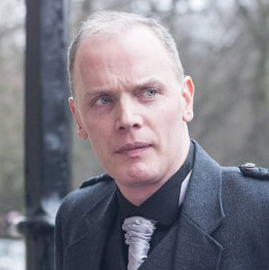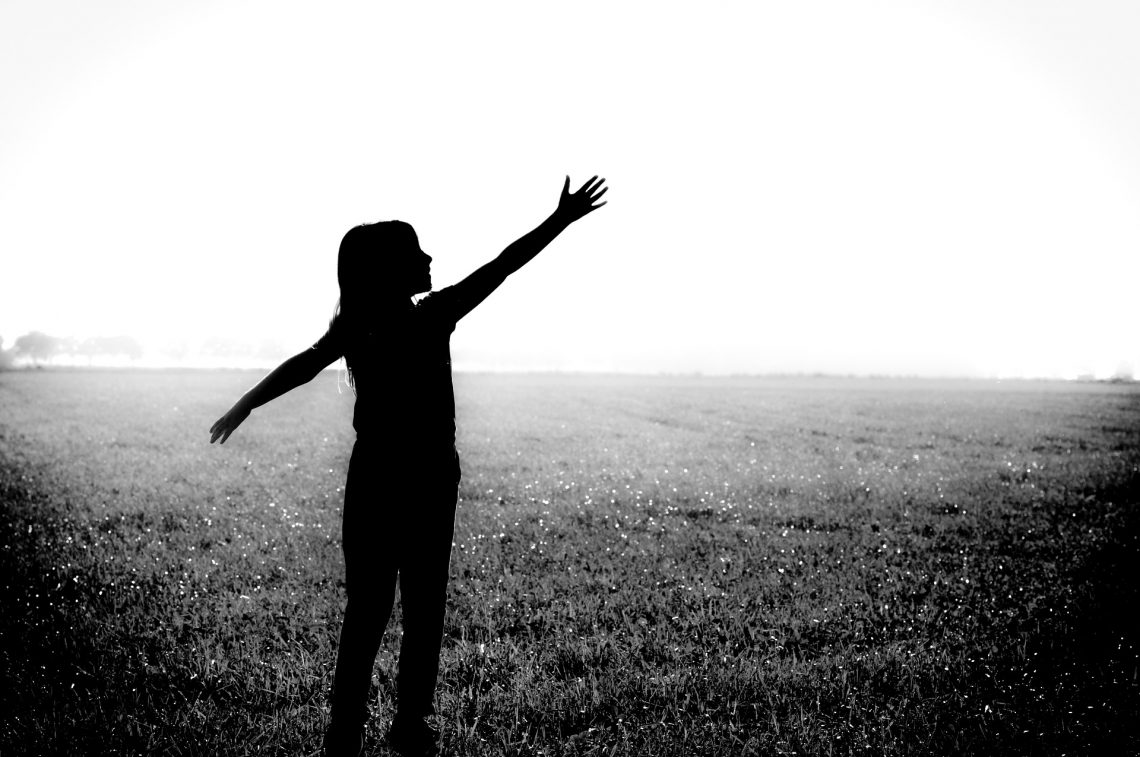Adventures in Homeschooling Open Up New Possibilities

By James Fitzgerald
The threat of mandatory temperature checks and mask wearing in schools has some parents at the tipping point, where they start to plot a future with tutelage of their kids moved firmly under their supervision and roof. This was preceded by evidence of extreme liberal agendas being added to curriculums in some states, where traditional notions of sexuality and gender are being challenged or overturned completely. Divisive and disturbing statements made by academics from elite universities on race and gender have further undermined confidence in the educational system in the US and Europe.
When Pink Floyd sang “we don’t need no education”, they were lamenting the harsh and industrial nature of the schools of the 1960s and ‘70s, where cynicism and the cane were the order of the day. The pendulum of western society has now swung towards parental paranoia around safety and an indulgence in the requisite metrics to achieve success for their children in the academic sphere.
The lockdowns of the past few months haven given families a crash course in juggling work, domestic duties and added teaching roles, often with the whole family co-existing under the same roof with nowhere to go and no outside help available, due to pandemic concerns. This sudden disruption to the pattern of life has caused anxiety and tensions within the home, with some people questioning the viability of long-term home-schooling, while others have had eureka moments of discovery as they see their children more assured and prolific under there direct guidance.
If the company I was working for hadn’t dropped its freelance staff in one fell swoop three months ago, I too would have been struggling to oversee the daily demands of my eight-year-old daughter’s online school activity. However, instead of worrying about where the next dollar was going to come from, I have been subsumed in this new and exciting project that has evolved into something much bigger than just writing essays and working out equations.
The curriculum set out by the school was intellectually challenging but allowed scope for both creative and physical expeditions into unconventional realms, as we completed the allocated tasks in good time. In between visits to a nearby horse ranch, we have had discussions on quantum physics and cosmology (utilizing the elegant and unified theories of William Tifft, Harold Aspden and Aleskey Dmitriev) and scoured the night sky for constellations and shooting stars. While tuning in to the International Space Station live feed one morning, we encountered an anomalous object entering Earth’s outer atmosphere. At that moment the feed was cut, but my daughter was left questioning the narrow premise that life only exists on this planet. The existing notions of dark matter and red shift to explain the scope and distances in space are, in contrast confusing and unverifiable.

Each day we visit our allotment to water the crops. All that work has come to fruition now, as my daughter joyfully plucks raspberries, cucumbers and broad beans from their stalks and unearths a bounty of potatoes, garlic and onions, with the satisfaction that they were all nurtured and given life by her. We say a prayer of thanks before eating them, to assuage her instincts that the plants might feel pain or distress. She would never eat “anything that has a face”, which was a perspective and conscientious stance I had never heard of before. We have also found time to take up polo, albeit in an isolated manner, and have watched foals being born and stallions being shod.
By walking my daughter through the schooling process, I have been forced to re-learn the fundamentals of math, and brush up on my terminology around grammar and English. It has allowed me to also recontextualize my own experiences as a child, as I view my earlier life through her prism of goodness and inquisitiveness. I had banished most of my school life to the dustbin of the memory banks, but many of the pleasant and loving experiences that had been forgotten have begun to surface. The scary and demeaning scenarios of my youth have also lost much of their power, as I look again with a restored sense of humour and hard-won sovereignty.
For other children, however, a good, caring school is preferable to home life. By the age of nine, I had been to seven different schools, as my parents dragged us around the world. First Wellington, New Zealand, then Carlisle in England, then Winnipeg and Montreal in Canada, followed by Newton Mearns in Scotland. I found most of those schools to be deeply patronizing, but for the most part not cruel in the way teachers had been to my parents’ generation. My mother would regale me with horror stories about how school masters would beat children with rulers and canes, in some cases breaking their bones. Her brothers faced a Jesuit education, where trauma-based indoctrination was administered with skill and ruthless detachment.
My own wanderings on the streets of downtown Montreal as a seven-year-old were not a far cry from John Singleton’s “Boyz n the Hood” — except without the guns. Much else in that film was familiar; the bleak concretized industrial landscape either side of the freeways and the hierarchy of street urchins, who would always be looking to hustle something from you, whether it was candy or emotional loosh. This was an education in street dynamics, where your mood and demeanor would determine whether you were a victim or victor on any given day.
Someone once described my childhood as “being left to your own devices”. She wasn’t wrong. As my school in West Mount, Montreal, shifted from English-French to French-English, under the auspices of the ascendant Parti Quebecois, it felt like I was a sheep being passed from one nondescript farmer to another. I honestly do not recall ever having been acknowledged by a teacher in that school. But having a non-identity — or feeling like a nobody — had one benefit; it provided the scope for me to explore who I was as an individual, although ultimately that was going to take a few decades to make sense. There were two boxes that I could tick as we left Canada and set off for Scotland in the early 1980s — I was physically brave, and I could see through the veil of the system.

For those parents with little time and who feel intimidated by the prospect of taking on the national or other curriculum, co-operatives are opening up, where teachers who have become jaded with the institutional system have broken away, and now offer small groups of children tutelage in the basic subjects. There are also websites, such as The Confident Homeschooler, which offer guidance and online teaching courses.
Perhaps inspired by the stories around Paramahansa Yogananda’s Ranchi schools, my daughter and I pursue the rudiments of Kriya Yoga, where we discuss philosophical and practical applications of the yogic life — including psychic development and pranic breathing. In his book, Autobiography of a Yogi, Yogananda said: “The ideal of right education for youth had always been very close to my heart. I saw clearly the arid results of ordinary instruction, aimed at the development of body and intellect only. Moral and spiritual values, without whose appreciation no man can approach happiness, were yet lacking in the formal curriculum.”
In 1918, Yogananda founded a school he called the Yogoda Satsanga Brahmacharya Vidyala. “I organized a program for both grammar and high school grades,” he said. “It includes agricultural, industrial, commercial and academic subjects. Following the educational ideals of the rishis, I arranged that most class instruction be given outdoors.”
His Ranchi students were taught yoga meditations, and a unique system of health and physical development, he explained, called “Yogoda”. In India at that time it seems it was only boys who could receive such coaching. “The boys at Ranchi responded well to Yogoda training, developing extraordinary abilities to shift the life force from one part of the body to the another part and to sit in perfect poise in difficult asanas (postures). They performed feats of strength and endurance that many powerful adults could not equal.” A group of his students traveled to the West in the late 1930s, giving exhibitions of strength and muscular control. Professors at universities across America and Europe were amazed by the demonstrations of the power of the mind over the body.
This sounds all very well for yogis with advanced training and wealthy benefactors, but for the rest of us, such ambitious goals seem far-fetched. But assuming more people do manage this integration of the educational curriculum into their domestic spheres, we can only speculate on what effect this will have on the academic benchmarks that for now seek hegemony and one-size-fits-all criteria for measurement. If some of us manage to equip our children with advanced knowledge of quantum mechanics, spirituality, languages, and direct interface with the natural world, then the priorities and agendas of the academic institutions may also fall into line with this holistic and organic world view — repositioning the individual’s creative freedoms over the compliance standards of industry.

This utopian benchmark will not be possible or desirable for all parents, but the supernatural abilities of children who have been given the focus and tools to elevate their consciousness and wider knowledge are well documented. At the end of the day, preserving the happiness and spontaneity of our younger generation is what matters, so that they are poised to realize their unique abilities and contribution to society.
As things stand in state schools, the outdated and narrow notions of Newtonian physics still prevail, while the empowering and transformative narratives from quantum physics continue to be ignored. World history is also due a revision, in light of recent revelations from the worlds of archaeology and independent academia. Vortex math, which conveys the connectedness of all life, in comparison with the isolated, uncontextualized formulas of trigonometry or calculus, would also no doubt enthuse many more kids to do their sums.
When schools are used as extensions of the medical industrial complex, where the spectre of controversial jabs and mask mandates and social distancing measures are growing, one might be forgiven for thinking that the education boards are more interested in following the edicts of nameless policymakers in the halls of power than they are about making assessments about the welfare of the children in their charge.
Hopefully the determination of some parents to put their children’s individuality and sovereignty first will trickle out and influence educationalists, as the exam results speak for themselves. It takes time to develop and understand and appreciate your function in life (assuming you ever do), and that this diversity is part of an elegant jigsaw puzzle. The machinery of government might be motivated to favor compliant and docile robots out of convenience, but that approach is anathema to societal progress. As someone posted on their Twitter feed this morning: “A screwdriver is a lousy hammer, and a hammer is terrible screwdriver. Surely we each have our own roles to play.”
The technocratic mediascape revolves around vapid celebrity culture and crude depictions of sex and violence. How can the straitjacket framework that is social media be a launchpad for new paradigms and expansion for the next generation when these platforms — which are shamelessly targeting and curtailing independent thought online — be trusted as custodians of our children’s minds?
As Martin Geddes said this week on social media: “Our education system rewards ‘drag racers’ — people who can go in a straight line as fast as possible with maximum traction horsepower. The world we currently live in is best for ‘rally drivers’ — people who can corner at speed and change direction constantly without crashing.”
As rough and neglected as it was, I’m glad that my childhood happened before technology took over. In the absence of doting parents and sibling camaraderie, I had at times the trees to embrace me and the animals to console me. My daughter will hopefully get the best of both worlds, with the help of a daddy who was forced to question, and embrace, those worlds on his own terms.
My daughter got straight A’s in her end-of-year school report — achieved in a third of the time spent at school. The teachers’ comments ran something like “XXXXXXX turned in some exceptional work last term and gave some very interesting answers to the self-reflection questions. We will test her when she returns to the classroom, to gauge her progress.” They might be doubting that such stellar results were all hers, although I know better. Total belief in your child and a flexible, broad approach to the curriculum can produce spectacular results. It really is possible to have your cake and eat it with homeschooling, so much so, that I am setting my sights on seeking out a job that will allow these adventures and exploration to continue.












8 Comments
Leith
Yes , wonderful . I agree !
My child is thriving home schooling !
When I asked him today what he learned from his first experience of vacuuming the car , he said; patience . ‘It takes more time and attention to detail than I realised ‘ .
Perfect . Job well done mummy , if u don’t say so myself ! 😃
And he earned some pocket money . Even better ! So he is thriving to get going tomorrow . 👍
James Fitzgerald
Leith,
Great to hear that. When they are confident and enjoying themselves, they can achieve anything. The loving gaze of their parents is what activates the magic. Onwards and upwards! J.F.
Ann Burandt
My husband home schooled my two kids: my daughter came home at the beginning of 8th grade, and our son, six year’s younger, came home a year later. We live in a rural area, and are farmers/ranchers…and both our children enjoyed the cattle and horses especially. Homeschooling afforded them the opportunity to help gather cattle or process cattle or help with some other aspect of agriculture. There are times they both were on a horse during the week, and once in a while doing some school on a Saturday.
Homeschooling isn’t for everyone. Do it because you really want to and are prepared mentally. Parents don’t have to have a college degree to homeschool. A parent should be ready to learn with their child. If the parent can’t help the child, seek Co-op classes of seek a tutor. A parent has to be disciplined- get the child up in the morning, and get going on school. A schedule is important. Consistency is important.
Children should be able to interact with other kids: 4-H, girl scouts, boy scouts, music lessons, etc. Make it fun- to a point….Good luck any future home schoolers that may read this.
Ann B,
Texas Panhandle
James Fitzgerald
That’s very good advice, Ann.
I suppose it’s good that more people are considering it; but, as you say, it wouldn’t be for everyone. The discipline and motivation of my daughter started to slip a bit as the holidays approached, but she had covered a lot of ground by then. J.F.
MickieKnows
I homeschooled my kids for 7 years. We started school at 9 in the morning. Without the rush to get to the next classroom they were able to finish stuff without being rushed. We would do lunch and finish up by about 1:30 to 2:00 in the afternoon. After that they had Suzuki lessons, homeschool Phys. ed. and general goof off time. I found it rather nice to be able to put my feet up at 4:00 after getting dinner started. That was probably the nicest plus.
I was the principal, curriculum director and teacher. I decided from which books my children were taught. If one of my kids needed to slow down or be promoted into the next phase I got to decide that. We had the chance to go camping in Colorado in October and I did not have to ask anyone for permission.
James Fitzgerald
That’s great to read, Mickie.
I think many more kids and their parents will go down that route, and forge their lives on their terms, rather than according to the system’s demands. We have just published a follow-up piece on teacher unions – which you won’t need to read!
Dar
Check out Sudbury Schools. No grades, no classrooms no requirements, yet children often enter ivy league schools. Run democratically and on the principle children want to learn and will do so independently without a teacher. Many numerous books written on the success of Sudbury Schools. Should relieve new home school parents that learning is a natural force and it’s not necessary a chore.
James Fitzgerald
Dar,
Very interesting. I hadn’t heard of Sudbury Schools. Steiner and Montessori, yes. Anyone we know attend one, who went on to public office or celeb status?